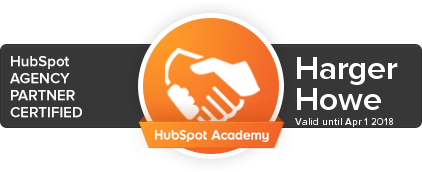We are well into an era of business that thrives on digital technology, confident leadership, and advanced knowledge. Company leaders are readily seeking well-trained, fresh-minded candidates to drive success within their businesses. This process calls attention to age, experience, and professional development – which is causing turmoil in the world of recruitment. The expectation of achieving age diversity is ruffling feathers and creating challenges for today’s job seekers, recruiters, and hiring managers.
Defined, ageism is “prejudice or discrimination based on a person’s age.” Legally, ageism is restricted and unacceptable. Innately, it’s inevitable. Age discrimination is prevalent at both ends of the spectrum, affecting both the older and younger demographics during the job search process. Older job seekers are often assumed to be overqualified or too expensive, while younger applicants, new grads and career shifters are questioned for their lack of preparedness needed for a given role. The truth of the matter is, candidates are being overlooked or disregarded because of societal misconceptions of a particular age range. To get a better idea of the rising issue of ageism, I sat down and spoke with people who have felt its bias.
Susan Henning, former Senior Sales & Advertising Consultant for the Journal of the American Medical Association, recently relocated and has been searching for a job for the last year or so. During our very candid conversation, she expressed her discouragement as she is an older, qualified professional in her field and feels that her experience is playing against her. “I’ve been using Indeed, Glassdoor, LinkedIn…. It seems to me that today most job descriptions are geared toward a younger person, including details about their ‘young, dynamic team’ with keywords like happy hour, stacked beer fridge, catered breakfast/lunch, and dog friendly office.” She’s noted that she’s exhausted all of her tricks to “leave out her graduating year” and “match exactly the key words for the applicant tracking system” to catch a break in the search. Despite Susan’s efforts to network, remain knowledgeable in her industry, and apply consistently for positions – she has yet to make anything stick.
On the other hand, Steve Finnegan, MHA, MSEM felt the influence of his age and lack of professional experience when he was looking for a job early in his career. After completing his bachelor’s and spending a few years working as a teacher, he went back to school to pursue a master’s degree in Emergency Management. Post-graduation, it took Steve two and a half years and 130 interviews to land his first post-graduate job. He explained, “Of the 130 interviews, I found 40 to be interesting and I thought for sure I was being seriously considered for. In 38 of those, I was a final candidate. But every time, I got the same response – that my education was great, but I didn’t have the experience. How was I supposed to get experience without someone taking a chance on a new grad?”
So, where exactly do we draw the line? How do companies, hiring managers, and recruiters avoid the topic of age when they are looking for viable candidates?
Years later, Steve has overcome the adversity of his job search and is now a Healthcare Outpatient Practice leader at Wentworth-Douglass Hospital in Dover, New Hampshire. As a Hiring Manager, he draws on his past experiences when selecting candidates for interviews. “I tend to interview a lot of people, and when they come in the door it’s a clean slate. My goal is to find the best fit for my team and my company. It’s less about what I see on paper, but more about what I see in person.”
Paige Ricci, MHA Practice Manager at Seacoast Cancer Center in Dover, New Hampshire, weighed in and explained that in her mind, as a Hiring Manager, age is hardly a consideration. “I want the candidates to be confident and well-spoken – If they aren’t familiar or comfortable working with something, I want them to say they’re up for the challenge and will figure it out. I want someone who will show me that they’re ready to learn and adapt to change. Most importantly, I look for them to showcase their intangibles.”
As a job seeker, there are certain things you can do to prepare yourself to make your interview and resume more about you as a person and less about your age. Keep reading for a few tips to age-proof your job search.
Stay up-to-date!
Keeping up with current trends and technological advancements in your industry is critical for anyone embarking on a job search. This is not to say that you need to be an expert in any particular area but having the ability to convey that you understand contemporary practices within your field is important to any Hiring Manager or Recruiter.
If you’re not in the know, take the time to do the research before sending in an application for the desired position. Consider getting certified in platforms and/or programs your industry may be using. For instance, my colleagues at Harger Howe Advertising took the time to self-train and earn certifications in Hubspot and Google Analytics.
Another effective way to communicate your knowledge or show what you know is through your cover letter and resume. Make it a point to highlight and include any points or skills you believe will be relevant to the status of current industry standards.
Be present on social media
The influence of social media in the workplace is undeniable. It has implications for every industry, business, and employee on a day-to-day basis. Being familiar with today’s major platforms (Facebook, Instagram, LinkedIn, and Twitter) can get you a long way in your job search. Not only does social media introduce you to an extensive network of people who can help you get connected, but your presence and activity will show employers that you are up to date with modern technology.
Read the job description… and be upfront about salary!
Understanding the position you are applying for is crucial. If you are willing to take a pay cut, be very clear in your cover letter so that you won’t be passed over by a recruiter who assumes you’re overqualified and of greater value than the open position. Employers will often disregard your resume if they believe you’re looking for higher pay than the job offers.
Finding a company that is actively seeking a candidate with your knowledge and experience is the key to getting to the interview phase. Directly acknowledging the skills desired in the job description in your resume and using your cover letter to further explain exactly the role you are looking for will increase your chances of getting your foot in the door.
Prepare for your interview… and those age-related questions!
Age-related questions are often uncomfortable to answer. Though legally you can’t be asked your age in an interview, it’s commonly addressed in a roundabout manner. Get ahead of objections and prepare for what you think your interviewer will touch on. The more confident you are with your answers, the better the impression you will make. You can mention things such as how much longer you intend to work, how your age is advantageous, or you can play on your experiences within the industry. For example
Why would you be the best candidate for this position?
“I have 10 years of experience in the industry and am confident I could make significant contributions to the company. I’m excited for the opportunity to continue to build upon my skillset and grow as a professional.”
or
“As a recent graduate, I can bring a fresh mind and new ideas to the company. I’m eager to learn and am motivated to help out in any way that I can. I look forward for the opportunity to start my professional development and grow within a great company.”
Where do you see yourself in five years?
“I have no intent to stop working anytime in the near future. My hope would be to be still working here and driving success for the company.”
or
“I’m looking for a company where I can grow. In five years, my hope is that I will be on an upward trajectory to a higher-level position here at this company.”
Network for Experience
In today’s tight market, networking plays a larger role than ever in a job search process. The more people you know, the more people there are that can connect you to different companies, and roles. Beyond this, networking is a great way to gain experience if you are a new grad or someone who is switching industries. Offering to volunteer at a company will help you acquire the skills employers are looking for.
Harger Howe’s Creative Content Manager, Gillian Barnes, used this strategy to get her career started in the marketing industry, and explained to me that “I am not originally from the marketing space - meaning I do not have a degree in marketing. In fact, I come from the ranks of the artists, a sector that is notoriously considered to be less than detail-oriented. When I realized that my lack of a specific degree was playing against me (because employers assumed I didn’t have necessary skills), I worked around it.
First, when I had a photography business, I opted to do all the design and social media myself. It was time-consuming, and it was definitely a learning curve, but ultimately, it made me more valuable to marketing agencies.
In addition, prior to getting hired at Harger Howe, I volunteered to maintain a social media page for my town’s Community Awareness Council. It was something that the other members weren’t interested in, so I took it as an opportunity to legitimize my skills by adding the Beverly Police Department to my resume.”
Volunteering is a simple way to revamp your resume and make those experience related questions easier to answer. Gillian stressed “There are always people who need help. You can make an impact in your community and get ahead in your career if you can just find the right fit!”
--
Have you experienced ageism in your job search? Or, are you a Recruiter who is struggling with age-related hiring issues? We welcome the opportunity for you to share your experience with us.
Subscribe to our blog below to read all things related to recruitment!











